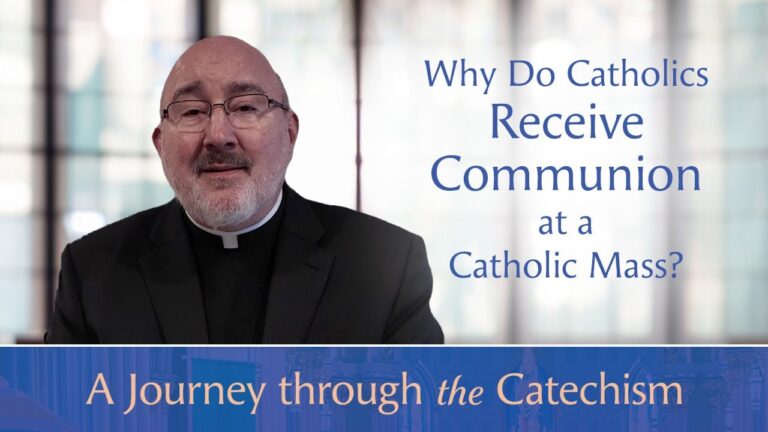Understanding Communion: A Guide for Catholics
Communion for Catholics is a sacred ritual that embodies the essence of faith, community, and spiritual nourishment. This profound sacrament, also known as the Eucharist, represents a deep connection between believers and Christ, reaffirming their commitment to the teachings of the Church. As Catholics gather to partake in this holy meal, they not only honor the Last Supper but also strengthen their bonds with one another, fostering a sense of unity and belonging within the faith. Understanding the significance of Communion is essential to grasping the heart of Catholic worship and its role in the spiritual journey of millions around the world.
What is the significance of communion for Catholics?
Communion for Catholics represents a sacred union with Christ, embodying faith, community, and remembrance of Jesus’ sacrifice during the Last Supper.
What are the guidelines for receiving Catholic Communion?
Receiving Holy Communion is a vital aspect of Catholic worship, representing a deep and intimate connection with Christ. It is encouraged for the faithful to partake in this sacrament frequently and with devotion, reflecting on its profound significance in their spiritual journey. The act of receiving Communion is not merely a ritual but a celebration of faith, unity, and grace within the community.
To be properly prepared for Communion, Catholics are called to approach the altar with a clean conscience. This means that participants should not be aware of any serious sin, as being in a state of grace is essential for receiving the sacrament worthily. This emphasis on self-examination fosters a respectful and reverent attitude towards the Eucharist, allowing individuals to fully embrace the grace it provides.
Additionally, there is a guideline regarding fasting before receiving Communion. Traditionally, Catholics are expected to fast for at least one hour prior to partaking, abstaining from food and drink to cultivate a spirit of reverence and anticipation. This practice not only honors the sacredness of the Eucharist but also prepares the heart and mind to receive the body and blood of Christ with utmost respect and gratitude.
What is the typical age for a Catholic’s first Communion?
First Holy Communion marks a significant milestone in a child’s spiritual journey, typically celebrated around the ages of seven or eight. At this stage, children are considered to have reached the age of reason, allowing them to actively engage in the sacraments of the Catholic Church. This important event follows the sacraments of baptism and reconciliation, and is often accompanied by a deepening understanding of faith and community, as children embrace their role within the Church.
Who is ineligible to receive Communion in the Catholic Church?
In the Catholic Church, receiving Holy Communion is a sacred privilege reserved for those in a state of grace. Individuals who have committed grave sins and remain unrepentant are barred from approaching the altar, as are those who have not adhered to the one-hour fast from food and drink prior to the sacrament. It is essential to recognize that Holy Communion is not merely a ritual; it is the embodiment of God’s presence in our lives, inviting us into a deeper relationship with Him, rooted in faith and repentance.
Deepening Your Faith Through the Eucharist
The Eucharist serves as a profound connection between believers and the divine, offering a tangible experience of God’s presence in their lives. Through the sacrament, participants not only receive the body and blood of Christ but also engage in a sacred tradition that unifies the community of faith. This ritual invites individuals to reflect on their spiritual journey, fostering a deeper understanding of love, sacrifice, and redemption. Each celebration of the Eucharist becomes an opportunity to renew one’s commitment to live out these values in daily life.
As individuals partake in this sacred meal, they are reminded of the transformative power of grace that the Eucharist embodies. It encourages a deeper relationship with God, inviting believers to contemplate the mystery of faith and the call to serve others. This profound experience nurtures the soul, instilling a sense of belonging and purpose within the larger community. By deepening their faith through the Eucharist, believers embark on a lifelong journey of spiritual growth, compassion, and service, rooted in the love of Christ.
A Step-by-Step Journey to Communion
Embarking on a journey toward communion is an enriching experience that deepens our connection with ourselves and others. It begins with self-reflection, where we take the time to understand our beliefs and values. This introspective phase allows us to identify what communion means to us personally, setting the foundation for a more profound understanding of our relationships with those around us.
As we progress, the next step involves engaging with our community. This means actively participating in conversations, rituals, and shared experiences that foster unity and understanding. By reaching out to others and embracing diverse perspectives, we cultivate an environment where empathy thrives. These interactions not only enhance our personal growth but also strengthen the bonds that weave us into a collective whole.
Finally, the journey culminates in the celebration of our shared experiences and insights. This can take the form of rituals, gatherings, or acts of service that honor the connections we’ve nurtured along the way. By recognizing and appreciating the beauty of our communal ties, we create a lasting impact that extends beyond ourselves. In embracing this step-by-step journey, we discover the transformative power of communion, enriching our lives and the lives of those around us.
Embracing the Sacred: The Meaning of Communion
Communion is more than a ritual; it is a profound connection that transcends the physical act of sharing bread and wine. This sacred tradition invites participants into a deeper relationship with the divine, symbolizing unity, remembrance, and grace. As individuals partake in this sacred meal, they reflect on the teachings and sacrifices that shape their faith, fostering a sense of community and belonging. Through communion, believers embrace the essence of love and forgiveness, reinforcing their commitment to live out these values in their daily lives. This sacred moment serves as a reminder that spirituality is not just a solitary journey but a collective experience that nurtures the soul and strengthens the bonds between individuals and their faith.
The Heart of Catholic Worship Explained
At the core of Catholic worship lies the Eucharist, a sacred celebration that embodies the essence of faith and community. This central act, also known as the Mass, invites the faithful to gather in reverence, participating in a ritual that transcends time and connects them to the Last Supper. Through the breaking of bread and sharing of wine, Catholics believe in the real presence of Christ, reinforcing the profound relationship between the divine and the congregation.
Beyond the Eucharistic celebration, Catholic worship encompasses a rich tapestry of prayers, hymns, and rituals designed to foster spiritual growth and communal bonds. Elements such as the Liturgy of the Hours and the sacraments provide a framework for daily life, guiding believers in their pursuit of holiness. By engaging in these practices, the faithful immerse themselves in a tradition that emphasizes love, service, and the transformative power of grace, ultimately nurturing a deeper connection to God and to one another.
Preparing for Communion: A Spiritual Roadmap
Preparing for your First Communion is a significant spiritual journey that invites you to deepen your relationship with faith and community. This sacred milestone offers a unique opportunity to reflect on the teachings of Christ and the importance of the Eucharist. Engaging in prayer, participating in catechesis, and fostering a sense of reverence can help you cultivate the necessary understanding and appreciation for this holy sacrament. It’s a time to embrace the values of love, forgiveness, and gratitude that are central to the Christian faith.
As you approach this momentous occasion, consider the role of family and community in your preparation. Sharing this experience with loved ones can enhance your understanding and create lasting memories. Attend Mass regularly, engage in discussions about your faith, and participate in service projects to embody the spirit of communion. By immersing yourself in these practices, you not only prepare your heart but also strengthen your connection to the wider Church, making your First Communion a profound and joyful celebration of your spiritual growth.
Embracing communion is a profound journey for Catholics, offering a sacred connection to faith and community. It symbolizes unity with Christ and fellow believers, enriching spiritual lives and reinforcing the core values of love, service, and forgiveness. As Catholics partake in this cherished sacrament, they not only deepen their relationship with God but also strengthen the bonds that tie them to one another, making communion a vital cornerstone of their spiritual identity.





